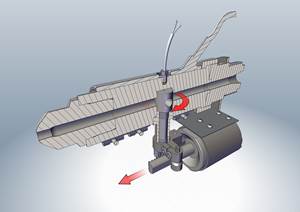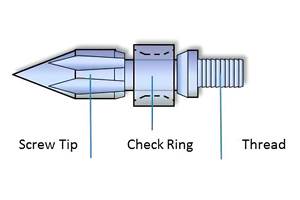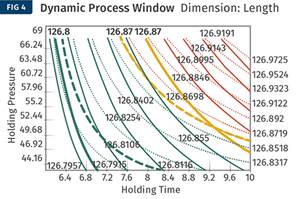Small Molder Makes Big Parts
Some people might be tempted to lump all processors with annual sales under $10 million into the same category: shoot-and-ship makers of no-fuss products using straightforward processing.
Some people might be tempted to lump all processors with annual sales under $10 million into the same category: shoot-and-ship makers of no-fuss products using straightforward processing. But they’d be wrong—at least in the case of Avedon Engineering Inc., an $8-million custom molder in the small but booming town of Longmont, Colo.
The company was established in 1965 to produce prototype tooling for big-name companies like IBM and Ball Bros. “First they asked us to build the tools, then they asked us to do the molding, then we got involved in product design,” says president Ray Avedon. Customers wanted large moldings with smooth, uninterrupted surfaces, so Avedon developed in-depth knowledge of low-pressure structural-foam molding and standard injection molding. “At least 50% of the products we make today use structural foam,” he notes.
Profits from ‘old iron’
Avedon’s expertise in structural foam—a rarity in Colorado—attracted major suppliers in the electronics and telecommunications fields, among them Apple Computer, Flextronics, Hewlett-Packard, Kodak, JBL Harmon, and Lucent/Avaya. “We do not have a sales campaign,” says Avedon. “All of our business comes through repeat customers, word-of-mouth, or referral.”
The company has two buildings encompassing 145,000 square ft and a staff of 50. Avedon molds parts from 2 oz up to 35 lb on three structural-foam presses (Battenfeld 185- and 300-tonners and an ancient Siemag 418-ton twin-barrel machine), and 27 injection machines of 55 to 1500 tons from Milacron, HPM, Kawaguchi, Natco, Reed-Prentice, and Van Dorn. The “old iron” (with newer controls) still works exceedingly well, Avedon says.
For some jobs, Avedon not only molds the housing but also carries out complete assembly. “Most smaller-sized molders are contract molders who just mold and ship parts. We generate our business by offering more operations. We molded the housing for a set of audio speakers from JBL and also installed the electronics and shielding and did the painting, assembly, and secondary machining.”
The company commonly makes foam parts as big as 4 sq ft, with walls as thick as 0.25 in., from a single shot up to 34 lb. “These large, flat parts tend to be highly cosmetic and would not be candidates for high-pressure molding because it would induce warpage. We work with structural foam to reduce warpage primarily, not to lightweight the part,” Avedon explains. The firm uses gas counterpressure to eliminate cosmetic defects.
Avedon does not need big volumes to get involved with a project. “We can take a project when just 2000 pieces are needed,” he says. Avedon also makes its own structural-foam molds in its 18,000-sq-ft toolroom, which has 24 CNC milling and EDM machines.
Proprietary product
Avedon also makes and markets a proprietary product that reduces heating/cooling costs in a plant while improving comfort. Developed originally for its own use, the Airius Thermal Equalization DeStratification Fan cures temperature imbalances from the floor to ceiling within a building. Hot air rises while colder air sinks. “The resulting differential can be 0.5 to 1 degree per foot of elevation,” says Avedon. In a plant with a 20- to 50-ft ceiling, this can mean temperatures can range from 60 F at the floor to more than 100 F at the ceiling.
The Airius fan is a ceiling-mounted system resembling a jet engine. It contains fan blades and a multi-vane stator assembly that draws in the hot air from the ceiling and directs it to the floor, creating a circular air flow. “Energy that was previously wasted because it was at the ceiling is instead transferred back to the floor. This can reduce energy use by as much as 50%,” says Avedon. The small motor consumes as much electricity as a 35-watt light bulb and can equalize temperature in a 35-ft circle or 1000 to 1500 sq ft. The Airius fan cut Avedon’s own energy bill by $30,000 the first year.
Related Content
A Systematic Approach to Process Development
The path to a no-baby-sitting injection molding process is paved with data and can be found by following certain steps.
Read MoreKnow Your Options in Injection Machine Nozzles
Improvements in nozzle design in recent years overcome some of the limitations of previous filter, mixing, and shut-off nozzles.
Read MoreGot Streaks or Black Specs? Here’s How to Find and Fix Them
Determining the source of streaking or contamination in your molded parts is a critical step in perfecting your purging procedures ultimately saving you time and money.
Read MoreOptimizing Pack & Hold Times for Hot-Runner & Valve-Gated Molds
Using scientific procedures will help you put an end to all that time-consuming trial and error. Part 1 of 2.
Read MoreRead Next
See Recyclers Close the Loop on Trade Show Production Scrap at NPE2024
A collaboration between show organizer PLASTICS, recycler CPR and size reduction experts WEIMA and Conair recovered and recycled all production scrap at NPE2024.
Read MoreLead the Conversation, Change the Conversation
Coverage of single-use plastics can be both misleading and demoralizing. Here are 10 tips for changing the perception of the plastics industry at your company and in your community.
Read MoreFor PLASTICS' CEO Seaholm, NPE to Shine Light on Sustainability Successes
With advocacy, communication and sustainability as three main pillars, Seaholm leads a trade association to NPE that ‘is more active today than we have ever been.’
Read More





















